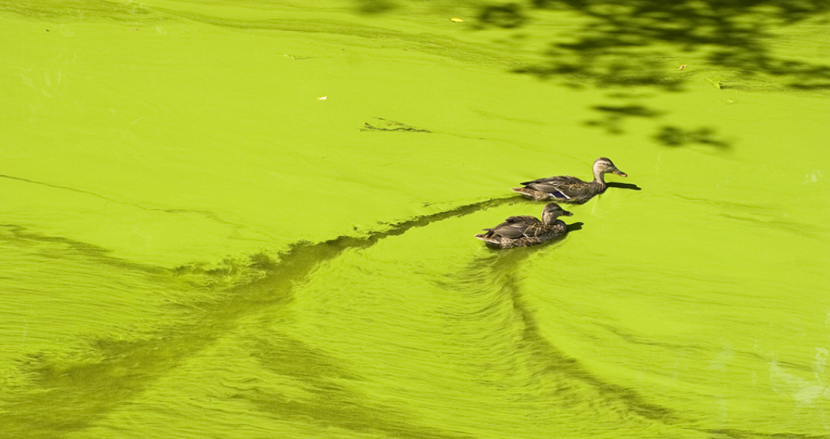by Elyas Harris.
Almost everyone who lives in rural parts of the United States use fertilizer. It is used for gardening or lawn work and even farms. This can be a good thing it helps the production of plants and vegetables and help them grow strong. But fertilizer can he very negative effects on the aquatic biomes. Fertilizer has very high nitrogen levels so that it can give plants the sufficient amount of resources for the plants to expedite growth. Say for example there is a large storm or heavy rains, some of the fertilizer will be swept up and deposited elsewhere. That is where the problem comes into play, that deposited fertilizer a lot of times ends up inside the water, lakes, ponds, you name it. It gets deposited in the water and it is good for a little bit of time.
This process is called eutrophication and it is happening in more than 80% of our fresh water reservoirs.
But what people fail to realise is that it starts to produce algae, and the algae grows and grows. This growth stays on top of the water. It continues to grow larger and larger until the whole surface of the water filled with algae. These are called algae blooms. The problem with them is that they will prevent the sunlight from getting into the bottom of the body of water. That kills the plant life under the water, and once the plant life dies so do the fish. That starts to happen over and over again slowly killing everything in that body of water until it is only algae in the water. This process is called eutrophication and it is happening in more than 80% of our fresh water reservoirs. This is an issue that is avoidable if we start using sustainable farming practices. To learn more about these ckeck out our earlier blog on The Future of Agriculture.
For more information on eutrophication visit: https://oceanservice.noaa.gov/hazards/hab/


